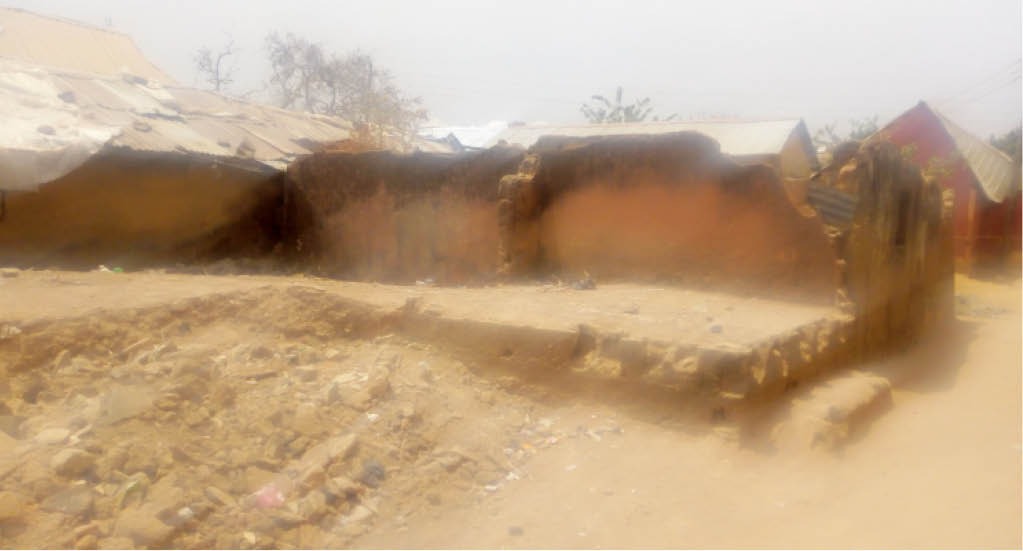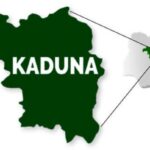Last week, a special screening of a television documentary of an investigative report on the banditry taking place in the North West of Nigeria titled ‘Nigeria’s Banditry: The Inside Story’ took place at the Transcorp Hilton, Abuja.
The event, as well as the documentary, was a collaborative effort between the Centre for Democracy and Development (CDD) and Media Trust, owners of Daily Trust and Trust Television.
- ‘Drug abuse, threat to Nigeria’s future’
- NIGERIA DAILY: Surviving Without Electricity In A ‘Hot’ Nigeria
Present at the occasion were officials of the American, British and Norwegian missions as well as donor agencies to the project.
The documentary itself was the product of the investigative derring-do by the duo of Abdul Aziz Abdul Aziz, ace investigative journalist and Deputy General Editor of Daily Trust, and Dr Murtala Rufai, Historian and Researcher at the Department of History, Usmanu Dan Fodio University, Sokoto, who authored the seminal book ‘I am a Bandit’ considered widely as the most authoritative account yet of the banditry taking place in the North West of the country.
The duo achieved the rare feat of tracking the principal characters of the banditry right to their remote operational camps, which have become killing fields for the inhabitants of the area, as well as innocent and daring visitors.
Professor Jibrin Ibrahim, a last-minute draftee to the discussion panel on the documentary, who is also a columnist with Daily Trust and Director of CDD, who is not known to be liberal with his praises, expressed his disguised admiration for Abdul Aziz and Dr Rufai for producing such a cutting edge documentary.
He remarked that the duo should be health-checked to determine if their general constitution were okay for the risk they took to venture into the camps of the dreaded bandits and return alive.
Footage of the documentary which made heart-wrenching viewing featured interviews with the major players of the scourge and their victims. From the documentary, we gleaned that large contiguous swathes of Katsina, Zamfara, Sokoto, Kebbi and Kaduna states covering an area larger than whole geopolitical zones of the country, are now free operational areas of the bandits.
From their vantage positions in the forests, the bandits have laid waste scores of villages, killing, maiming, raping and disrupting the livelihoods of millions of people in these states.
What really are the underlying issues and why have they become intractable?
From the accounts of the various protagonists, the principal issue is about pastoral rights of the Fulani herders who have come under pressure from local authorities as well as vigilante groups who in the course of the volunteer service often arrest, detain and levy the Fulani herders.
The activities of cattle rustlers also come into the mix pitting them against the Fulani herders. Inevitablym, clashes occur between them leading to a circle of revenge killings that have morphed into an orgy of great big bloodletting engulfing the entire North West geopolitical zone.
Dr Abubakar Siddique of Ahmadu Bello University (ABU), Zaria who produced a report years earlier on the subject calling on government to halt the observable dangerous trend in the growing alienation of pastoralists, also offered his perspective on the issue in the documentary.
Four main players are identified in the circle of violence; the army and police representing the government security and law enforcement, the vigilante groups and the Fulani herders.
The violence has an ethnic dimension as well; the vigilante who are mainly of the Hausa ethnic stock and the herders who are Fulani each justify their actions on the need to avenge the killings done to them, as well as to free their respective ethnic groups from domination of the other. In this sense, they both consider themselves freedom fighters struggling to liberate their respective tribes.
It is this mindset that makes it difficult to resolve the issue as both sides in the violence are convinced about the justice of their case and cannot be persuaded to think otherwise.
The displaced inhabitants of the destroyed villages and settlements are now living in camps in neighbouring Niger Republic. Traditional rulers, local businessmen have also become victims of the banditry. The case of the emir of the town of Bungudu in Zamfara State who was kidnapped on the Abuja-Kaduna highway last year also featured in the documentary.
The circle of violence has given rise to the incidence of kidnapping for ransom as a way of raising money to buy guns for protection and for yet more violence.
Government efforts mainly in the form of dialogue with the bandits and persuading them to hand over the arms in their possession in which huge sums have so far been expended have yielded little positive results. There are allegations of officials colluding with leaders of the bandits to divert the huge sums of money budgeted thus rendering the exercise ineffective.
Experts such as Dr Siddique and Dr Rufai believe that at the root of the problem is the desperate socio-economic situation and lack of opportunities for the inhabitants of the rural communities of the area which engenders such activities.
Dr Rufai believes that for the Fulani for instance, if the government were to embark on a comprehensive programme of provision of social amenities in their communities including veterinary care for their livestock, which will go a long way towards ameliorating some of the issues.
It is of course a matter which requires the concerted efforts of government, civil society groups, the media and related organisations to resolve as in the case of the documentary.
As Idayat Hassan of CDD remarked that more of such efforts will be coming up soon to bring to light the scourge of insecurity ravaging the country in order to find meaningful workable solutions.
The collaborative effort by Media Trust and CDD in producing the documentary is one of such commendable steps which deserve to be encouraged further.

 Join Daily Trust WhatsApp Community For Quick Access To News and Happenings Around You.
Join Daily Trust WhatsApp Community For Quick Access To News and Happenings Around You.



